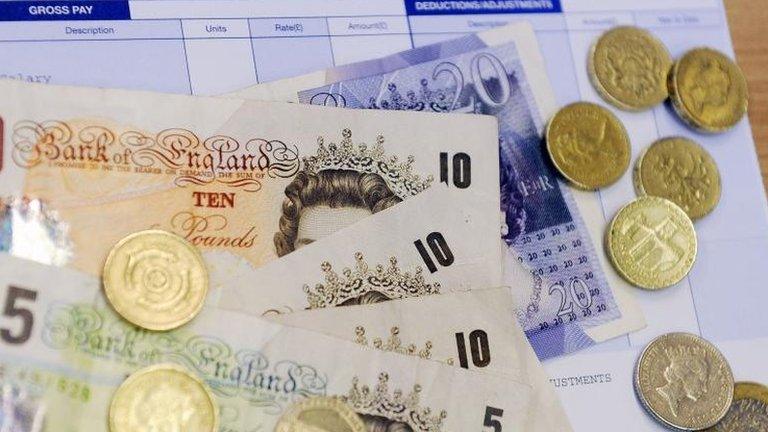Wetherspoon adds to Living Wage debate
- Published
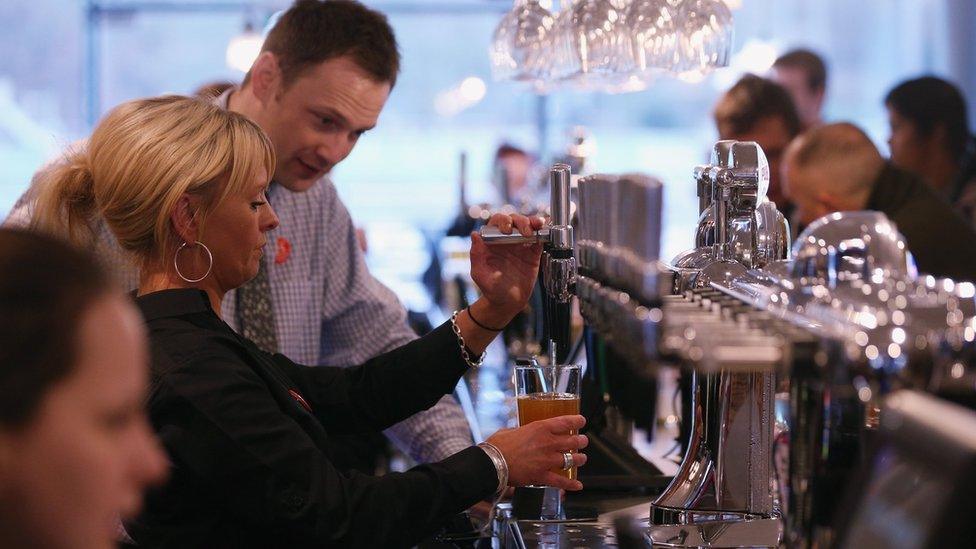
JD Wetherspoon has added its voice to concern about the National Living Wage (NLW) which takes effect in April 2016.
Its chairman Tim Martin told BBC News it was a move away from the minimum wage being carefully considered by the Low Pay Commission.
"Now it seems to be Osborne and Cameron having a pint somewhere in Whitehall and coming up with a figure of nine quid," he said.
Chancellor George Osborne announced the NLW in his Budget in July.
But this week has been awash with organisations telling us about the effects of the policy.
The plan in the Budget was to have an NLW, which would be set at £7.20 per hour from April 2016 for people aged over 25.
That would be 50p above what the minimum wage would have been.
The plan is that the NLW will increase so that it reaches 60% of median hourly wages by April 2020. The median wage is the one you get if you put all the hourly salaries in the country in order and take the middle one.
The Office for Budget Responsibility, external (OBR) estimated that the NLW would be £9.35 per hour by April 2020. It put the cost of that into context, saying that the extra amount to be earned under the NLW would be about 0.3% of the total amount paid to workers in the economy and about 1% of total corporate profits.
On the other hand, the OBR also said that the NLW would mean a 13% increase in the minimum wage by 2020, compared with what would have been expected under the old system.
That's a pretty large increase, which makes predicting the effects difficult.
Falling employment
The OBR estimated that in 2020 there will be 60,000 fewer people employed as a result of the NLW, that there will be a small fall in economic output and a small rise in consumer price inflation.
Bear in mind, that is 60,000 people out of the more than 30 million people employed in the UK - indeed, 60,000 is within the margin of error on the figures we get each month showing how much unemployment has risen or fallen.
Mr Osborne said any jobs lost would be dwarfed by measures in his Budget that would create more than one million jobs by 2020.
A government spokesperson told the BBC on Friday: "The independent OBR expects the National Living Wage to give a direct boost in wages for 2.7 million low wage workers, with up to 6 million seeing their pay rise as the knock-on effects are felt higher up the earnings scale."
This week, some of the businesses that have been affected have said what they think the effects will be.
James Hick from Manpower Group said, external on Tuesday: "The National Living Wage is sending shockwaves through the UK labour market."
He said that some companies were already scaling back on their recruitment plans ahead of the introduction of the NLW in seven months.
"Support services firm Interserve has announced that the extra annual wage bill for its 15,000 cleaners could amount to as much as £15m, or 12% of its annual profits," he said.
"This sentiment was echoed by social care company Mears Group, which estimates the cost of meeting the wage hikes for its 4,000 care workers will be £5m, or 10% of its annual profits."
The government spokesperson responded: "To offset this, the government has cut corporation tax to 18% while smaller firms will also have lower national insurance contributions."
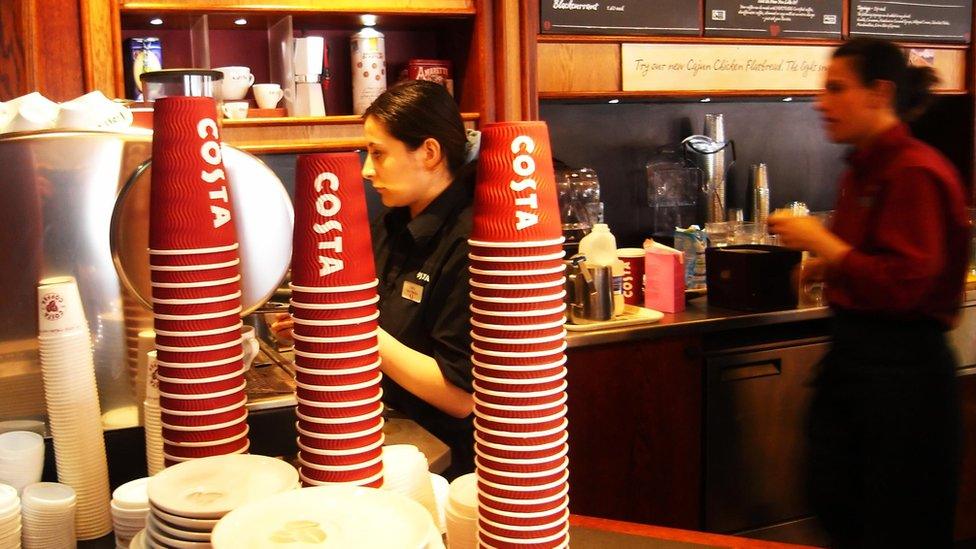
Rising prices
Also on Tuesday, Whitbread, external, which owns Costa Coffee and Premier Inns, said it would raise some of its prices to deal with the extra costs, but would also be trying to pay for it by cutting costs and increasing productivity.
This was no great surprise - the OBR set out in March that the options for dealing with the extra costs for firms were:
Cut the number of hours worked by staff
Reduce the number of people employed
Replace employees over 25 with younger staff
Raise prices
On Thursday, Next said, external it would have to raise prices, but not by very much. It stressed the benefit of all retailers having to deal with the same cost-rises, which would mean that competitiveness would be unaffected.
It estimated that prices would have to rise by about 1% over the four years to 2020, which it said was "unlikely to have a material effect on the trading performance of the business", adding that the 1% was pessimistic because improvements in productivity could reduce that amount.
But JD Wetherspoon said on Friday, external that the point about competitiveness didn't work in all sectors. It pointed out that the proportion of the price of a pint of beer bought in a pub that goes on staff costs was considerably higher than the proportion of a can of beer bought in a supermarket. The pub chain said increasing the price differential between pub beer and supermarket beer would lead to more pubs closing.
There was a more positive note from David Potts, chief executive of the supermarket chain Morrisons, who told BBC News on Thursday: "I am very positive about the opportunity for our front-line staff who work extremely hard and look after our customers to earn more."
He said the increase in costs by 2020 would be "measured in tens of millions not single millions" but that they hadn't yet decided how it would be paid for.
Tax credits cut
A report from the, external Institute for Fiscal Studies (IFS) on Thursday suggested those pay rises for front-line staff could be inadequate if they also claimed tax credits or benefits.
The IFS predicted that families with someone in paid employment that are eligible for benefits or tax credits would lose an average of £750 a year as a result of the changes to tax credits and benefits announced in the Budget.
It estimated that this group of 8.4 million working-age households would gain an average of £200 a year from the NLW.
Those averages also mask the differences in effects on different income groups. The IFS estimated that households in lower income groups would lose more as a result of the tax credit and benefit changes but gain less as a result of the NLW.
- Published10 September 2015
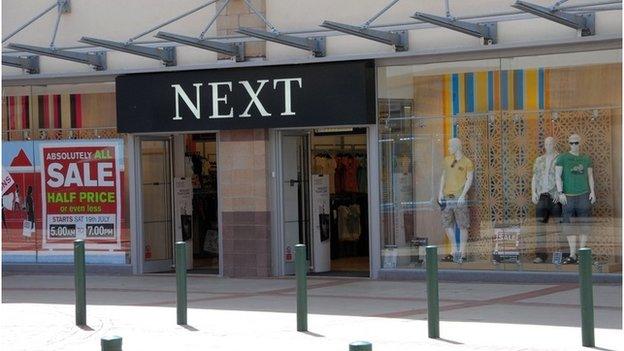
- Published8 September 2015
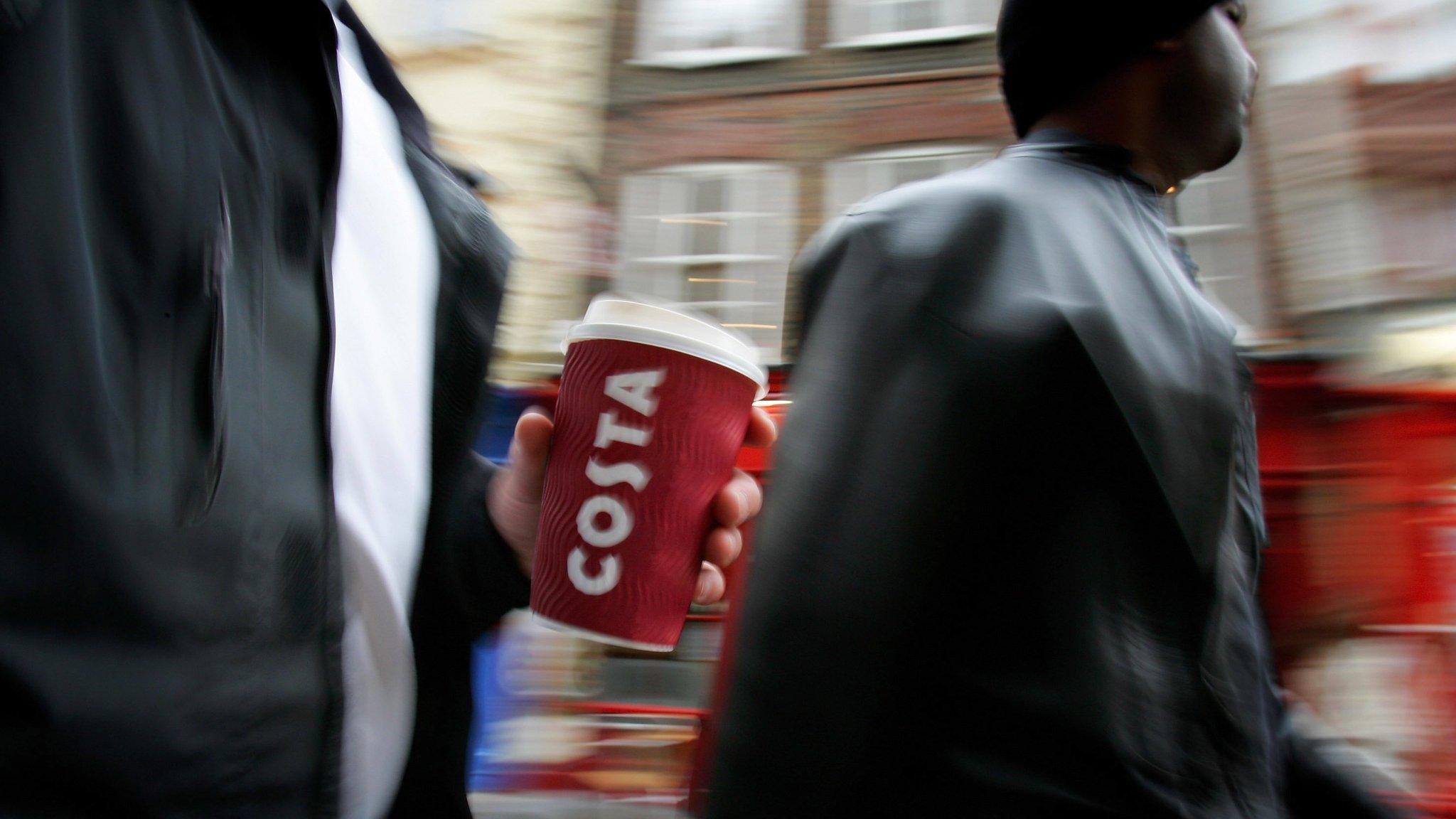
- Published3 September 2015
